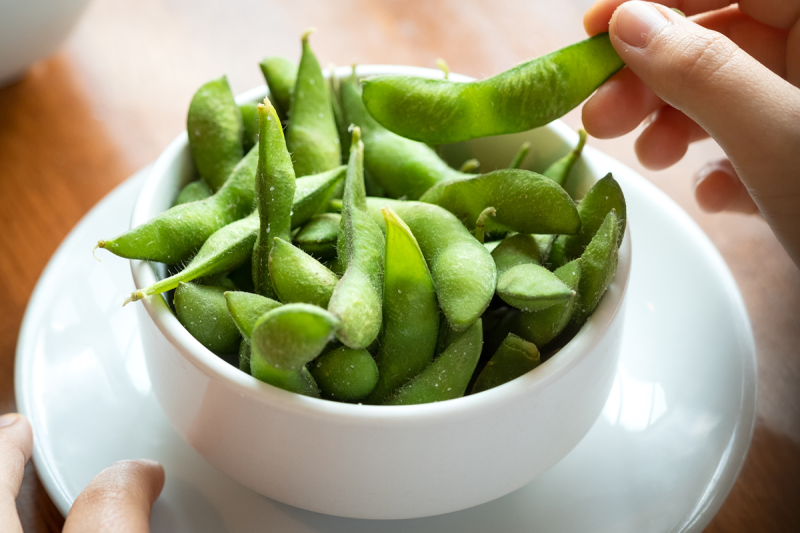
“Does eating soy cause breast cancer?” It’s a question regularly posed to Julia Brockway-Marchello, a Memorial Sloan Kettering Cancer Center (MSK) breast medical oncologist at MSK Nassau in Uniondale, New York. But her answer is a clear and decisive no.
“Soy is actually helpful for both preventing cancer and reducing its recurrence,” she says. “When we look at populations of people who have soy-based diets, we’ve seen lower rates of cancer, especially in breast cancer.”
Dr. Brockway-Marchello clears up the confusion by explaining that there are different types of estrogen. Our bodies make estrogen, a hormone, to keep our reproductive and other internal systems humming along. Estrogen can fuel certain cancers, like some breast cancers and prostate cancers. Our body’s estrogen is different from the type of estrogen found in soy, which is called phytoestrogren.
Dr. Brockway-Marchello shares what research tells us about soy and cancer, and how you can incorporate it into your diet — whether or not you have cancer.
What is soy made of?
Soy comes from soybeans. It’s made of isoflavones, which are a type of plant estrogen. It is structurally different from the estrogen in our bodies, and plant-based estrogen does not convert into the estrogen our bodies make when we eat it. So plant-based estrogen doesn’t drive cancer growth the same way that our own estrogen does.
Which soy foods are good sources of isoflavones?
I tell patients to stick with whole soy foods, not soy-based products. Some examples of whole soy foods are tofu, soy milk, tempeh, and edamame. Those are good sources of isoflavones. On the other hand, soy-based condiments like soy sauce and soybean oil do not contain enough isoflavones needed to get the benefits of soy. They may even be detrimental because they are high in sodium and trans fats.
And on the other end of the spectrum are soy protein isolate supplements. Soy protein isolate is a stripped-down version of soy that only contains protein — and none of the other benefits. It’s commonly found in protein bars and supplemental powders. Products with soy protein isolate may have higher concentrations of isoflavones than we consider safe.
What do we know about the relationship between soy and breast cancer?
Soy has been found to not only reduce the risk of cancer but also the risk of it coming back. One study showed a 30% reduction in breast cancer recurrence risk when people consumed a moderate amount of isoflavones. I tell patients: “Not only should you not avoid soy, but it could be beneficial to incorporate into your diet.”
Soy has a lot of health benefits outside of cancer prevention, too. It’s been associated with lowered cholesterol and reduced risk of heart disease in healthy adults and has even been shown to help stroke patients recover.

Does soy reduce the risk of any other cancers?
There is data showing that soy could reduce the risk of prostate cancer, which can also be tied to hormones. Some of the ways we treat prostate cancer overlap with some of the treatments we have for estrogen-driven breast cancer. We also have evidence that soy can reduce the risk of lung cancer and endometrial cancer, and we’re trying to learn more about why that is.
How much soy should we be eating?
First, it’s important to note that not everyone likes soy, and that’s fine. For those who do, one or two servings a day is the recommendation. One serving of soy could mean a half cup of edamame, one cup of soy milk, or a quarter cup of tofu. As with everything, balance is key.
Also, some cancer medications may interfere with soy, so it’s important to talk to your care team about how to incorporate it into your diet, especially if you are on active treatment.
Why do you think people are so interested in this topic?
There’s a lot of misinformation out there. It’s easy to feel out of control when dealing with a cancer diagnosis. Encouraging a diet of whole foods like soy is one way we can empower patients to manage their health.

